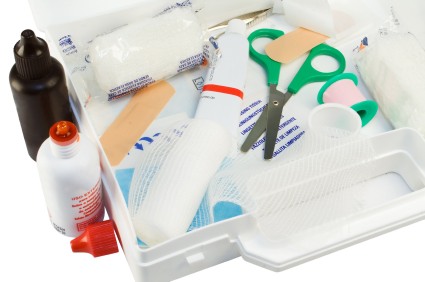Some chilled beer, fish curry and rice is just the perfect antidote to the rat race in a big city like Mumbai. And if you get to do it regularly, then you’re getting to be a good Goan! Which I am by birth.
It’s unfortunate that I live in Mumbai, and consequently such luxuries are hard to come by. But thanks to the new rail link with its comfortable reclining chairs, an overnight journey gets me to the shores of Goa, at a pretty good rate.
In Goa, ‘seista’ is so sacred, you can’t possibly get a leaf to move in the afternoons. However, the scene on the beaches is quite different.

The Making of Bhaile [Illustration by Shinod AP]
I got chatting with shack owners on the beach and their response upset me even more. They claimed that “those” children weren’t theirs (read Goan) and so it wasn’t their problem. “Those” were lamani (gypsy) children from neighbouring states. This got me all wound up and I decided to make some more inquiries.
It was quite clear that Goa was becoming an increasingly favoured destination for paedophiles. Local apathy at one end and denial by the state government just seemed to make it so much easier for these men. The social workers I spoke with said that their biggest problem was countering the local attitude.
This was the starting point of this film.
Funding in kind, not cash
After several subsequent visits and tons of research, I put in a proposal to one of the well known child relief organisations. Promises of funding soon evaporated as it decided against financing my film. This only heightened my resolve and I decided to go ahead and start shooting.
An old film school buddy offered me his miniDV camera to begin with. That opened the floodgates of support – a lapel mic from Mumbai’s biggest equipment supplier for free, a bagful of batteries from a sound-recordist friend, a DAT from another filmmaker friend, tapes, I couldn’t have asked for more.
Soon, help came from a friend who carried parts, literally parts of a DVCAM camcorder in his jacket pockets, and strolled nervously through the green channel, all the way from Singapore. A ‘godfather’ from Canada gave me a Birthday-cum-Christmas-cum-NewYear-cum-Easter-cum-whatever present of a lifetime – the Matrox RT2000 Edit software. If I say anymore I would be ranting off my credit list which I think is longer than the film itself!
What I felt happy about was that this film was being made in this way. So I put in every penny I had saved while shooting for the Indian version of “Who Wants To Be A Millionaire” and set off to Goa on my own.
The one-man team
So here I was in Goa – shooting, doing sound, asking the questions, all on my own, never having done it before. It’s one thing to chat with people about paedophilia but quite something else to get them to speak on camera. The fear is so real for them, especially for the beach shack
owners who eke a living out of serving their foreign clientele. But, it is remarkable how some of them stuck their neck out for me.
In the film, there’s a lot silence, unspoken bits that I hope the viewer can see through. It brings together people in Goa and elsewhere, who feel strongly about this issue.
True, it lacks a “victim”, a story many would have liked to see in the film. I did get close to meeting one of the boys abused in the famous Freddy Peat case. But I soon realised how traumatised his family was by my visits and I dropped the idea since I needed him only to make the film appear authentic to my audience. The thought sickened me.
Speaking to Freddy Peat
However, getting Peat – the only paedophile to be convicted – I think was my single biggest coup. I went into the jail premises with my crew (this time my finances allowed me to tag along a sound recordist), tripod and camera and after many meetings (not without difficulty), we did manage a shoot with Peat, who still denies being a paedophile and wants justice. He is almost blind, frail, but retains a razor-sharp memory at 70.
His one and only request after the interview was that I should take him to my house if he was ever released. Actually, Peat could be small guy in this whole multi-billion international racket. Could he be just a pawn? One will never know.
Thick-skinned politicians
What is interesting about the film is that not only does it throw light on paedophilia in Goa, it also highlights the gruesome face of apathy. Chief minister after chief minister has gone on record to deny that paedophilia exists in Goa. They maintain that Freddy Peat is an isolated case.
During the one year when I was filming, two paedophiles managed to escape the country and their passports are lying with the Goa Court. Ironically, the Tourism Minister choses to remain blissfully unaware and when I requested her for an interview, she had the most amazing reply: “Arre Baba, what (do) you want to interview me for. There’s no paedophilia activity in Goa.” I asked her if she could say that for me on cam. She did!
A touching gesture
Little wonder why I wanted to make this film with Goa as a case in point. This is not to say that tourism related paedophilia is not happening elsewhere in India – Rajasthan, Pondicherry, Manali, Kovalam, or Mumbai, but the increased tourist in-flow and the prevailing attitude are helping this activity to flourish.
But there is some hope that one may be able to put an end to child abuse. At least, after a few screenings in Goa, I feel this way. The response has been overwhelming. What was really heartening was that over 150 people turned up to see the film, a big number when you are a nobody.
For a change, there was no discussion on cinematic techniques, but on a need to alter the situation in Goa. A lot of people were surprised that I had done this on my own with no financial support. In fact, a lady came up to me and asked if she could offer me some money as her contribution to the screening. That was a big moment for me. Sure, I said touched very deeply by this gesture.
From a film on paedophilia to shooting marriage videos
Alongside, the non-governmental organisations have started a poster campaign against paedophilia, and for a cleaner tourism. I hope to travel to the many sea-side villages and screen the film which may hopefully stir a discussion and eventually lead to an increase in awareness and change in attitude. With the tourism ministry planning to begin work in the interiors of Goa to reduce the visitor population on the beaches, we need to be even more vigilant.
I always thought making a film was the hardest part, now I know better. Getting it screened is much worse. But there’s hope – after a small screening in Goa, a guy came up to me and asked if I would be interested in shooting marriage videos! Like I said this is my first film!
Ajay Noronha graduated from St Xaviers College, Bombay, in 1989 and then joined Child Relief and You (CRY), a national organisation supporting underprivileged children.
The experience at CRY prompted him to pursue a course in Mass Communications at Jamia Millia Islamia in New Delhi. He has since worked as a freelance cameraman on several documentary films and television programmes over the last six years. This is his first film as a director. And the first film on this issue in India.










